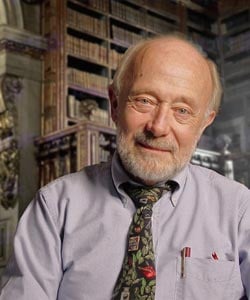Like a preacher who has pastored a congregation for more than a year, I am faced with the task of saying something about Advent again without simply saying what I said last year in my Advent blogs. And I commend those to you.
Of course, some repetition is unavoidable. Hard to talk about Advent and Christmas without seeking to emphasize what matters most. What is Advent with its climax in Christmas about?
To say the obvious, Christmas has rich cultural meanings. It is the most widely-celebrated holiday in the world, even by many who are not Christian. At its best, its cultural meanings are about generosity, gift-giving, good will, and gatherings with family and friends. These are good things, even as the cultural commemoration of Christmas has virtually been swallowed up by commercialism. It is the spending season of the year. That has been lamented by many, so I will say no more about it.
The religious meaning of this season can include all of the above even as it adds a quite different emphasis. For Christians, Advent (as its Latin etymology affirms) is about the coming of Jesus, in the past and the future. His first more than 2000 years ago when he was born into a historical life of humility and vulnerability; and his second in the future when he will return as judge of the living and the dead and establish God’s kingdom on earth. The first is more emphasized. How many Christmas cards have you seen that highlight the second coming? Or Christmas hymns have you sung about his future return? There are some but not many.
The problem with the Christian meaning of Advent and Christmas is not primarily commercialism, though that affects many. Rather, Advent and Christmas have virtually been swallowed up by the miraculous. The angel Gabriel comes to the virgin Mary and tells her she will conceive without the involvement of a human father. Prophets foretell such a birth, and even its location in Bethlehem, despite Mary and Joseph living in Nazareth. A special star moves with the precision of a global-positioning device to lead wisemen from the east to the place of Jesus’s birth. Angels sing in the night sky to shepherds. These are the themes of Christmas cards, hymns, manger scenes, concerts, and pageants.
To be candid, I do not think that any of this happened. Of course, there is some historical memory in the stories. Jesus was born. He really lived. He was Jewish. His parents’ names were Mary and Joseph. They lived in Nazareth, a very small peasant village, perhaps as small as a few hundred. But I do not think that there was an annunciation by an angel to Mary, or a virginal conception, or a special star, or wisemen from the East visiting the infant Jesus, or angels filling the night with glory as they sang to shepherds.
Yet I am not a “debunker” of these stories. I do not dismiss them as “fables” or “fabrications” or “falsehoods.” Many in the modern world do see the two options as “it happened this way” or “it didn’t” – and if it didn’t, then we are dealing with delusions and deceptions. A few years ago, a television special on these stories posed the question that way: are they “fact or fable”?
There is a third option. Namely, the Christmas stories with their miraculous elements were not intended to be “factual” in the sense of reporting what actually happened. Rather, they are early Christian testimony, written roughly a hundred years after Jesus’s birth. They testify to the significance that Jesus had come to have in their lives and experience and thought. The stories are parabolic, metaphorical narratives that can be true without being factual.
He was for them, in imagery from the birth stories themselves, the light in the darkness, the new Moses who confronts a new Pharaoh, the fulfillment of ancient Israel’s and humanity’s hopes and yearnings, the way of return from exile, the Spirit and Word of God revealed and embodied in a human life.
That is the testimony of the stories of Advent and Christmas. To make their truth dependent upon the factuality of the miraculous as some Christians and some rejecters do is mistaken. It distorts what they are about. Advent and Christmas are about the biblical hope and way, the path, to a new kind of world. They are about our rebirth and the world’s rebirth.
To those Christians who insist that the miraculous parts of the Christmas stories really happened, I gently and respectfully ask, “What is lost by letting go of that?” And, “Is anything gained by thinking of these elements in the stories as affirmations of the significance of Jesus?” That he and what happened through him is “of God”?
Does the truth of Christmas depend upon the “happenedness” of the miraculous? Or is its truth more-than-factual? For me, the answer is clear. For me as a Christian, Jesus is light in the darkness, the path of liberation, the way of return, the Word of God and Spirit of God embodied in a human life. In him we see God’s passion for a different kind of world. That’s what his coming and Christmas are about.











